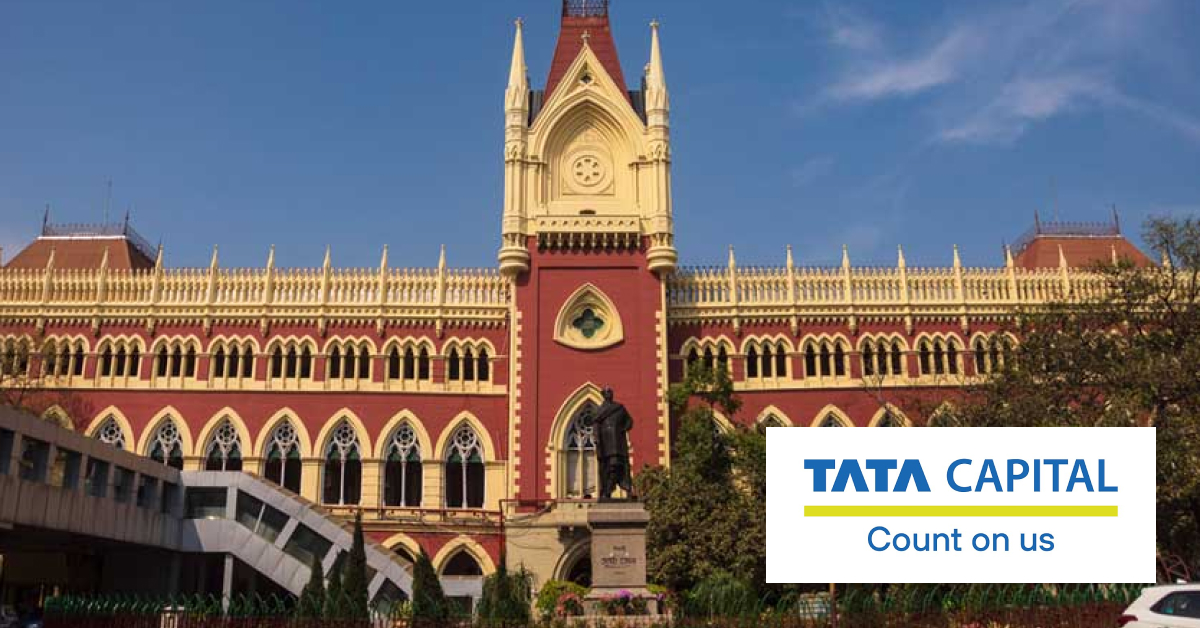In a decisive development, the Calcutta High Court referred a Rs.3.29 lakh loan dispute to arbitration in the matter between Tata Capital Limited and borrower Krishna Kant Tiwari, reinforcing the enforceability of arbitration agreements even post-corporate mergers.
Presiding over the case AP-COM/1035/2024, Justice Shampa Sarkar observed that Tata Capital Limited, though not an original signatory to the loan agreement, acquired the right to initiate arbitration following its merger with Tata Capital Financial Services Ltd. and Tata Cleantech Capital Ltd., as approved by the National Company Law Tribunal (NCLT), Mumbai, effective January 1, 2024.
Despite the publication of court summons in The Pioneers and Desh Bidesh Haribhumi, no appearance was made by the respondent, prompting the court to proceed ex parte. The petitioner was represented by Advocates Amritam Mandal, Jit Roy, and Aharnish Ghosh.
Loan Details and Default
Tata Capital Financial Services Ltd. had disbursed a business loan of Rs. 3,29,000 to the respondent. Following a default in repayment, a loan recall notice was issued on August 12, 2024, but no settlement was made. The petitioner then invoked arbitration on November 7, 2024, in accordance with Clause 9 of the business loan agreement, which stipulated Kolkata as the arbitration seat.
The petitioners argued their case based on the inherited rights from the merged entities and stressed that, under current law, arbitrators can no longer be unilaterally appointed by a party from its own panel—thus, judicial appointment was sought.
Legal Reasoning and Precedents
Justice Sarkar emphasized that the petitioner, though a non-signatory, had acquired legal standing due to the merger, citing relevant Supreme Court rulings. In particular, she referenced Ajay Madhusudan Patel v. Jyotrindra S. Patel (2025) 2 SCC 147, where the Apex Court noted:
“The intention of the parties to be bound by an arbitration agreement can be gauged from the circumstances that surround the participation of the non-signatory...”
The Court further elaborated with precedent from Chloro Controls India (P) Ltd. v. Severn Trent Water Purification Inc. (2013) 1 SCC 641, which permitted arbitration between a signatory and a third party under certain legal and factual circumstances.
In another key reference to Cox & Kings Ltd. v. SAP (India) Pvt. Ltd. (2025) 1 SCC 611, the bench highlighted the evolving doctrine of “group of companies,” which enables non-signatories with deep involvement in contract execution to be bound by arbitration clauses.
“The referral court should leave it for the Arbitral Tribunal to decide whether the non-signatory party is indeed a party to the arbitration agreement,” the Apex Court held.
Appointment of Arbitrator
Considering the maintainability of the application, the High Court appointed Mr. Nayan Chand Bihani, Senior Advocate, as the sole arbitrator. He will proceed in accordance with Section 12 of the Arbitration and Conciliation Act, 1996, with liberty to fix his fees as per statutory guidelines.
Thus, the matter was disposed of, and arbitration is now set to determine the fate of the defaulted Rs.3.29 lakh loan.
Read The Judgment Here
keywords: Tata Capital loan dispute, Calcutta High Court arbitration, Rs.3.29 lakh loan default, arbitration post-merger, non-signatory arbitration rights, business loan agreement arbitration

